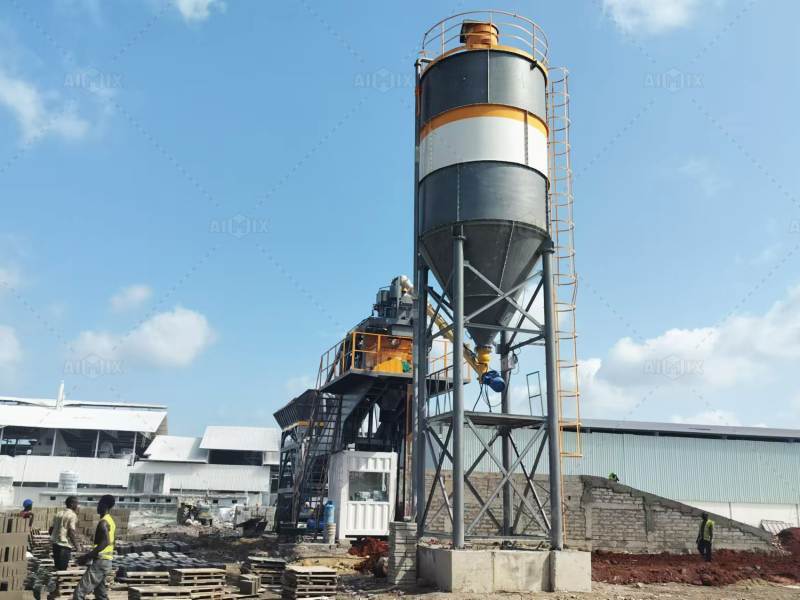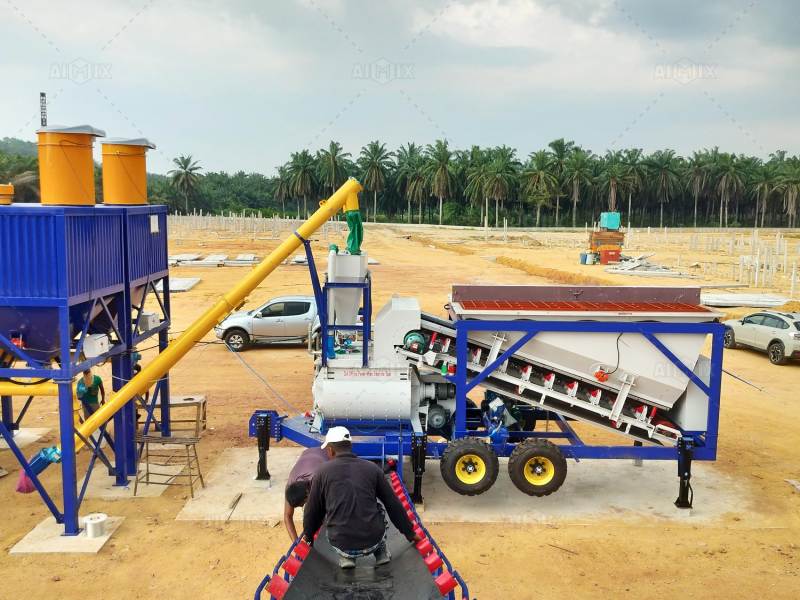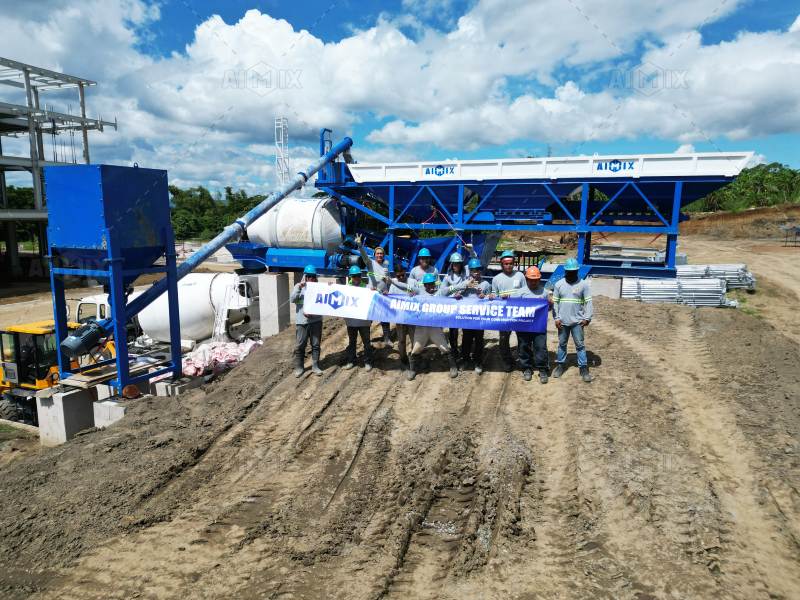How Automation Is Elevating Mini Concrete Batching Plant Capabilities
As the construction industry embraces digital transformation, even small-scale equipment like mini concrete batching plants are benefiting from cutting-edge automation. Once seen as basic tools for low-volume jobs, today's mini plants now integrate advanced technologies that rival those found in full-scale industrial setups. This evolution has opened new possibilities for contractors, builders, and developers seeking high precision, speed, and consistency in compact packages.
This article explores how automation is revolutionizing mini concrete batching plant performance—from control systems and weighing accuracy to maintenance and energy efficiency.

1. The Rise of Mini Plants in Modern Construction
Mini concrete batching plants are compact, mobile units designed for producing smaller volumes of concrete—typically ranging from 15 to 35 m³/h. They are ideal for:
-
Residential construction
-
Urban infrastructure repair
-
Precast product manufacturing
-
Remote or restricted access projects
Their affordability and mobility have always been attractive, but what sets today's mini plants apart is the inclusion of automated systems, which enhance efficiency and output quality.
2. Automated Control Panels: The Brain of the Operation
At the heart of every modern mini concrete batching plant lies an automated control system, usually powered by a PLC (Programmable Logic Controller) or HMI (Human-Machine Interface).
These panels automate:
-
Material dosing
-
Batch timing
-
Mixing duration
-
Error detection and alarms
Operators can manage the entire process via touchscreens with intuitive graphical interfaces. With preloaded mix designs, the plant ensures accurate proportions every time—eliminating guesswork and minimizing operator error.
3. Precision Weighing Systems: Accuracy That Matters
Concrete quality depends heavily on the exact ratio of cement, sand, aggregates, and water. Automation has brought laboratory-grade accuracy to mini plants by integrating:
-
Digital load cells
-
Automated water metering
-
Real-time data correction
These systems enable consistent batches with minimal deviation, ensuring that even small-scale concrete production meets industrial standards. This is particularly important for projects involving structural elements or high-performance concrete.
4. Mix Customization and Repeatability
Automation allows users to save multiple custom mix designs in the system. This is especially useful for contractors who:
-
Work on multiple projects with varying mix requirements
-
Need to produce both normal and special concrete (e.g., fiber-reinforced, colored, or lightweight)
At the touch of a button, the concrete batching plant can switch from one formula to another—saving time and reducing waste. Repeatability becomes effortless, which is vital for quality control and regulatory compliance.

5. Enhanced Mobility with Pre-Wired Modular Design
Thanks to automated integration, many mini batching plants now come as modular units with plug-and-play features:
-
Pre-wired control systems
-
Pre-installed load cells and sensors
-
Self-diagnostics to confirm readiness
This design significantly reduces installation and commissioning time. The plant can be moved, set up, and fully operational within a single day, making it ideal for fast-paced project schedules.
6. Remote Monitoring and IoT Integration
Another groundbreaking shift is the use of remote diagnostics and IoT (Internet of Things). High-end mini plants now support:
-
Remote monitoring via smartphone or computer
-
Real-time data logging
-
Performance alerts and troubleshooting guides
Contractors can check production reports, error logs, and mix data from off-site locations, enabling proactive decision-making and fewer delays.
Some manufacturers—such as Aimix—offer cloud-based platforms where clients can monitor multiple mini plants across job sites from a single dashboard.
7. Maintenance Optimization and Safety
Automated systems also contribute to safer and more reliable plant operation. Features include:
-
Automatic grease alerts and lubrication schedules
-
Motor overheat warnings
-
Batch log records for maintenance tracking
Routine maintenance is now built into the operating logic, minimizing human oversight. This not only reduces downtime but also prolongs the lifespan of critical components.
Additionally, safety interlocks ensure that the mixer or conveyor doesn't operate if a hatch is open or if materials are not loaded correctly—helping prevent accidents on site.
8. Energy and Resource Efficiency
Automation isn't just about convenience—it also drives sustainability. Smart control systems optimize:
-
Power usage by reducing idle time
-
Water consumption with precise dosing
-
Cement and aggregate usage through precise weighing
These efficiencies translate to lower operating costs and reduced environmental impact, making automated mini plants more appealing to contractors pursuing green building certifications or cost-sensitive projects.

9. Future Outlook: Smarter and Smaller
Looking ahead, the mini concrete batching plant market is expected to grow significantly, driven by:
-
Urban construction and infill projects
-
The rise of modular and prefab construction
-
Contractors seeking agile and flexible production systems
As AI and machine learning begin to play a role in predictive batching and maintenance forecasting, the capabilities of these compact machines will only continue to expand.
Manufacturers like Aimix are already pushing the boundaries by introducing AI-enhanced batching systems and solar-powered mini plants—underscoring the role of mini batching plants in the future of smart construction.
Conclusion
The integration of automation into mini concrete batching plants has elevated them from simple mixers to highly sophisticated production units. These upgrades empower contractors to deliver consistent, high-quality concrete efficiently—even on small or remote job sites.
With features like automated dosing, remote monitoring, and intelligent maintenance, the modern mini plant offers an exceptional return on investment for companies looking to scale their operations without compromising quality or flexibility.
As technology continues to advance, we can expect mini plants to become even more autonomous, efficient, and indispensable in the evolving construction landscape.